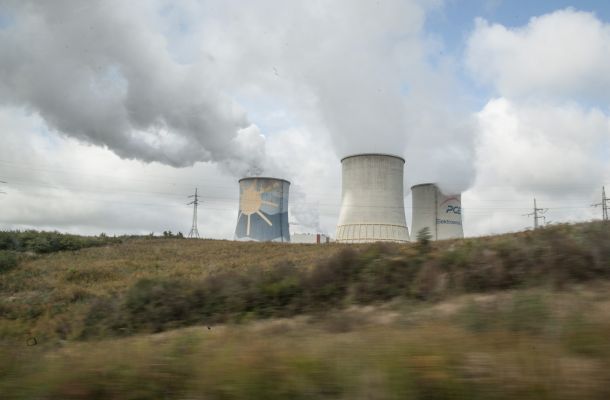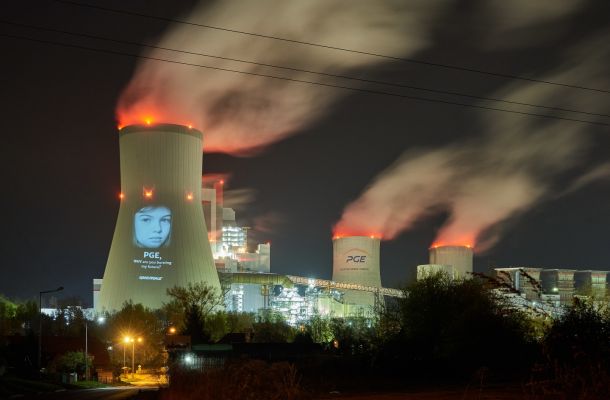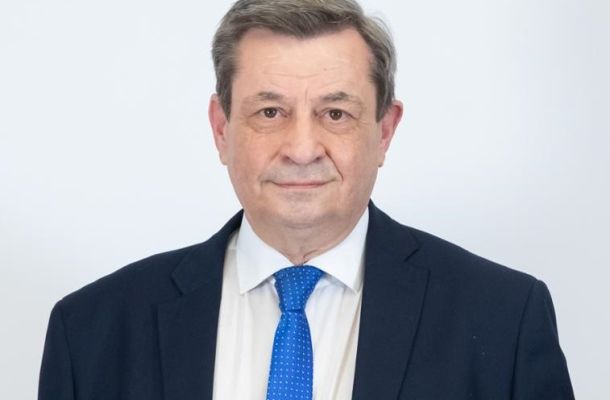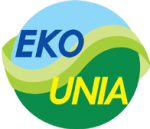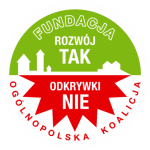Thirst for justice: communities take on coal giant for stealing their water
Where Poland, Czechia and Germany meet, a thirsty coal mine threatens to leave 30,000 people without water but local communities are not giving in.
Author: Roberta Arbinolo
Published by META - the news channel for EEB
Situated in a thin strip of Polish land bordering the Czech region of Liberec and the German state of Saxony, the Turów open-pit lignite mine is already drying up water resources from two countries. Polish state-owned company PGE is now planning to expand of the mine and re-licence its operation until 2044. This would result in a water grab of the groundwaters of a whole region, in breach of EU laws.
Determined to defend their access to a vital resource, local communities are coming together and asking the EU to intervene and stop the mine expansion – yet time is running out. Supported by EEB member Frank Bold and by Greenpeace, representatives from the Liberec region and impacted citizens handed the European Parliament a petition signed by more than 13,000 Europeans in three months.
META talked to them about the Turów water grab and heard their stories.
Life without water
Milan Starec comes from Uhelná, a Czech town bordering Poland and the Turów mine. He explains how thousands of people’s access to water in the area depends on private wells and one common public source – both compromised by PGE’s water extraction.
“Our wells have either completely dried out or have become very unreliable, so we have no choice but to look for desperate solutions. Our neighbour from Václavice, Mr. Kopecký, has to do his laundry at his parents’ house 20 kilometres from his home, while the family of Mr. Kronus is left with zero water supply and pump [water] it into their well from the local creek. A farmer called Mr. Kirschner had to kill six cows last year, as he did not have enough water for the whole herd. Many people share similar stories.”
At the same time, the Turów mine drains about 40 litres of water per second, he reports.
“This is equal to the annual consumption of 350,000 people, the whole Liberec region. If the mine comes closer and becomes deeper at the same time, thousands of people will be endangered.”
Michal Martin is from the neighbouring town of Václavice, and he has similar stories to tell. When his well dried out last summer, local authorities organised water supply through the fire brigade, but the solution was not sustainable.
“I had to purchase five water tanks and have them filled up regularly from a tank truck, which is a pretty expensive solution. Otherwise once in a while I have to bring 100 metres of hoses to the only public water source in the village and pump water into a well closer to my house. Others without such a possibility have to make do with 20 litres of water per day, flush the toilet with rain water and wash their clothes at their relatives’ houses,” he tells META.
“While PGE, instead of accepting responsibility for our current situation and solving it, is doing the exact opposite by coming even closer and deeper with the mining for another 24 years. I just keep asking myself how this is possible?”
If losing access to water is the main risk local residents face because of Turów, it is not the only one. Noise and air pollution from the adjacent Turów power plant, which burns the lignite from the mine, are also impacting their quality of life, as well as the cracking and depreciation of property due to the instability of the rock subsoil.
“We are exposed to continuous infra-sound created by the machinery in the mine and – depending on the wind direction – noise and dust from the mine,” says Daniel Gabryš from Uhelná.
The Turów plant is one of the worst offenders in the EU for both public health and CO2 emissions, according to the international campaign Europe Beyond Coal.
Against EU laws and ambitions
Local residents and civil society groups have taken all legal steps available at the national and transboundary level to challenge the expansion of the Turów mine. Back in 2016, the water crisis had escalated to a diplomatic case, ending up on the agenda of bilateral meetings between the Czech and Polish Prime Ministers and their Ministers for the Environment. Unheard by Poland and PGE, they are now taking the case to the attention of the EU. The Liberec Region submitted a complaint to the European Commission outlining all the violations of EU directives in detail, while the 13,000 signature petition asks the European Parliament to intervene.
“This process is burdened with a systematic violation of EU law, which both we and our government have constantly pointed out, all without any result. That is why we have turned to the European Parliament and the European Commission, who alone can still intervene at this point. It’s our last hope of rescue,” said Jiří Loffelmann, a representative of the Liberec region, at the press conference following the petition delivery in Brussels.
The expansion of the mine is incompatible with the EU’s landmark water law, the Water Framework Directive (WFD), as it would cause inadmissible deterioration of water bodies.
At the same time, Poland’s refusal to accept liability for potential environmental damage to the territory of Czechia — including preliminary estimated costs of up to EUR 80 million for water infrastructure alone — goes against the EU Environmental Liability Directive.
The Environmental Impact Assessment (EIA) Directive and the Strategic Environmental Assessment (SEA) Directive are also part of the picture, because of changes in the spatial plan for the main expansion issued by Poland regardless of the Czech statement on environmental impact, and of the efforts of the Czech government to settle the issue.
Campaigners also remark that the project is incoherent with EU ambitions for climate neutrality and a just transition beyond coal. While Poland is expected to receive the largest share, EUR 2 billion, of the Just Transition Fund, financed by taxpayers across the EU, the Turów project would contribute to a lock-in of unsustainable coal -fired energy in the country, in direct opposition to the desired trend.
The extended mine would extract an estimated 10 million tons of lignite per year, which would result in CO2 emissions of approximately 10.3 million metric tonnes per year as a minimum rate.
“We are now in a time of climate crisis and we need to act, not to make it worse. So it would be very irresponsible to continue mining and burning coal for the next 24 years,” said Greenpeace Czech Republic’s Nikol Krejčová at the press conference.
Petra Urbanová, lawyer from Frank Bold, added: “That’s why we organised this petition of European citizens, and turned to European Parliament which represents them, to ask them to investigate this petition’s content, undertake a fact-finding mission to the territory, get in touch with the European Commission concerning the violation of directives and to discuss this issue publicly in the European Parliament.”
Popularne Artykuły
PGE myths vs reality
Why are you burning our future?
Polish prime minister dismisses for the truth about Turów
About Us
Our organizations jointly counteract the expansion of the open-cast Turów lignite mine in Poland for the benefit of local communities, nature and climate. We support civic activities undertaken by the international community at the interface of the Czech Republic, Germany and Poland. We strive to make the lignite-dependent Bogatynia enter the path of energy transition as well as economic and social transformation.
